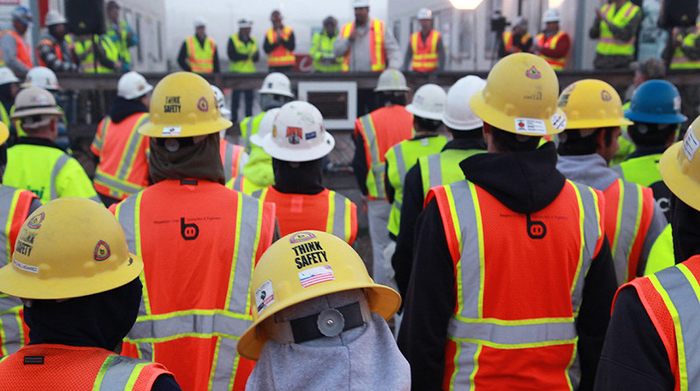How a Strong Safety Culture Can Benefit Utilities

Image courtesy of NAVFAC under Creative Commons License Attribution 2.0 Generic, resized to 700 x 391 pixels.
A utility company’s safety protocols are only as good as the company’s overarching safety culture. Simply having policies and protocols in place is not enough, because there is no guarantee that employees will embrace them. The challenge is that there is no one-size-fits all approach; every company’s culture must be unique.
Benefits of a Robust Safety Culture
First, it is important to understand what exactly safety culture means. According to OSHA, a safety culture is the aggregate of the shared beliefs, practices, and attitudes that exist at the company that help drive employee behavior.
It’s important because a culture that is strong in this regard typically results in lower incident rates, less turnover and absenteeism, higher productivity, and fewer at-risk behaviors. That said, this is not like a switch that can be seamlessly flipped on and off. A culture of any kind must be built organically and takes time to propagate.
Some of the common attributes of a strong safety culture are a commitment to safety at all levels, promoting safety as a core company value, and the attainment of employee buy-in via constant communication or reinforcement of the company’s commitment to safety.
In addition, the culture must be constantly nurtured by providing training and education, engaging in the monitoring or measurement of safety performance, and delivering consequences for noncompliance, or else employees may perceive that the safety messages are little more than lip service.
In addition, the culture must be of the “blame-free” variety. Workers must feel confident reporting unsafe behaviors or conditions without the fear of repercussions. When workers do not speak up, unsafe conditions might linger indefinitely. To take it a step further, some utilities actually offer incentives for employees to call out unsafe conditions.
In the final analysis, safety policies are important for emergency preparedness but are only effective if employees are dedicated to following them, and having an excellent safety culture is one of the most important things utilities can do to ensure that employees are completely bought into the cause.



